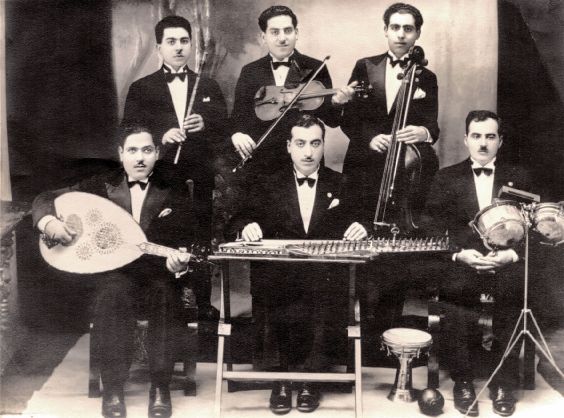The Torah describes the song of the Israelites, after crossing the Sea of Reeds, in the future tense:
אז ישיר משה ובני ישראל את השירה הזאת
Moshe and the Israelites will then sing that song…
The Midrash comments that this refers to the song which will be chanted at the final redemption:
The coming of Messiah will be marked by a new song… (Shemot Rabba, 23:6)
While religious leaders lament what they consider to be an erosion of faith and practice, people, I believe, still seek spirituality, faith, and inspiration, only that the center of gravity, for some, has shifted from the synagogues and the prayers to the world of music and self-expression. A great rabbi once said that if God would not have given us the Torah, we would have engaged ourselves with music. Music provides spirituality, guidance, tradition and direction. It is a tool for expressing emotions, concerns, prayers and more. It can be studied thoroughly and abstractly, just like the Torah, and it can be celebrated joyously and spontaneously as a deep religious experience. In recent years, with the help of YouTube and shows such as The Voice and American Idol, we have witnessed an amazing proliferation of vehicles and channels for people to create and present their own music.
I must admit, though, that I initially dismissed this phenomenon as a quest for fame and fortune, until a friend convinced me to watch an Israeli version, called “A Star is Born”, and I changed my mind. I saw sincere people who represented the full gamut of Israeli society. Soldiers, doctors, teachers, and butchers; teenagers, grandparents, and housewives; Secular Jews turned Hassidic, and Hassidic turned punk; For many of them, singing was not about show business but rather about finding their voice, their identity, and purpose in life. Singing was also a prayer, a dialogue with the God they were either looking for, thought has abandoned them, or that they have abandoned. There were songs of healing and catharsis, releasing suppressed emotions and retelling traumatic events. Contestants were singing their hearts out, praying for some recognition from their parents, family, and friends, pleading with them and with God not to leave them alone.
There was that observant girl, who came with her supportive and exuberant family, and who said that she was one of seven siblings, including a brother who passed away before she was born. She chose a song which I thought was cheesy and even somewhat pagan:
What if god was one of us… just a stranger on the bus…
As she started singing the audience dissolved and she was alone in the world, standing on a cloud, talking to God, and demanding to know where her brother is. Her rage and frustration conveyed the question through the words of the song: why couldn’t God be one of us? Why couldn’t He ride the bus like one of us, feel our love for our brother and not let him die? When the song was over, she was depleted, after having exposing pain and thoughts which were suppressed for years. For the mesmerized audience, it was a purely religious and piercing moment, more powerful than any sermon or prayer.
Idan Emmedi, a contestant in the eighth season of “A Star is Born”, chose to perform an original song. When Emmedi, then a commander in the IDF, started singing, the traumatic events in the lives of young Israeli soldiers, drafted right out of high school and turning from boys to men almost overnight, were painfully exposed. He sang about living through war, bloodshed and bereavement, and of his attempts to hide all these from his beloved. Emmedi, who grew up in a traditional Sephardic home, is a natural bridge between the old chants and prayers of Jews of the Middle East, and modern Israeli music. Indeed, in Israel a reawakening is taking place, as people reconnect to ancient musical traditions. Rock singers and bearded rabbis mix together, performing Baqqashot and old liturgy with new arrangements.
There is much more to be said, or rather sung, about the power of music. A new era of religiosity ushered in, the era of Musical Observance. Jews and people of faith the world over should hop on the bandwagon and find ways to enrich their spiritual experience and synagogue life by connecting to music they love, telling their story and talking to God, and may God bless us all to merit and be musically observant.








Ohr HaChaim Yomi – Emor